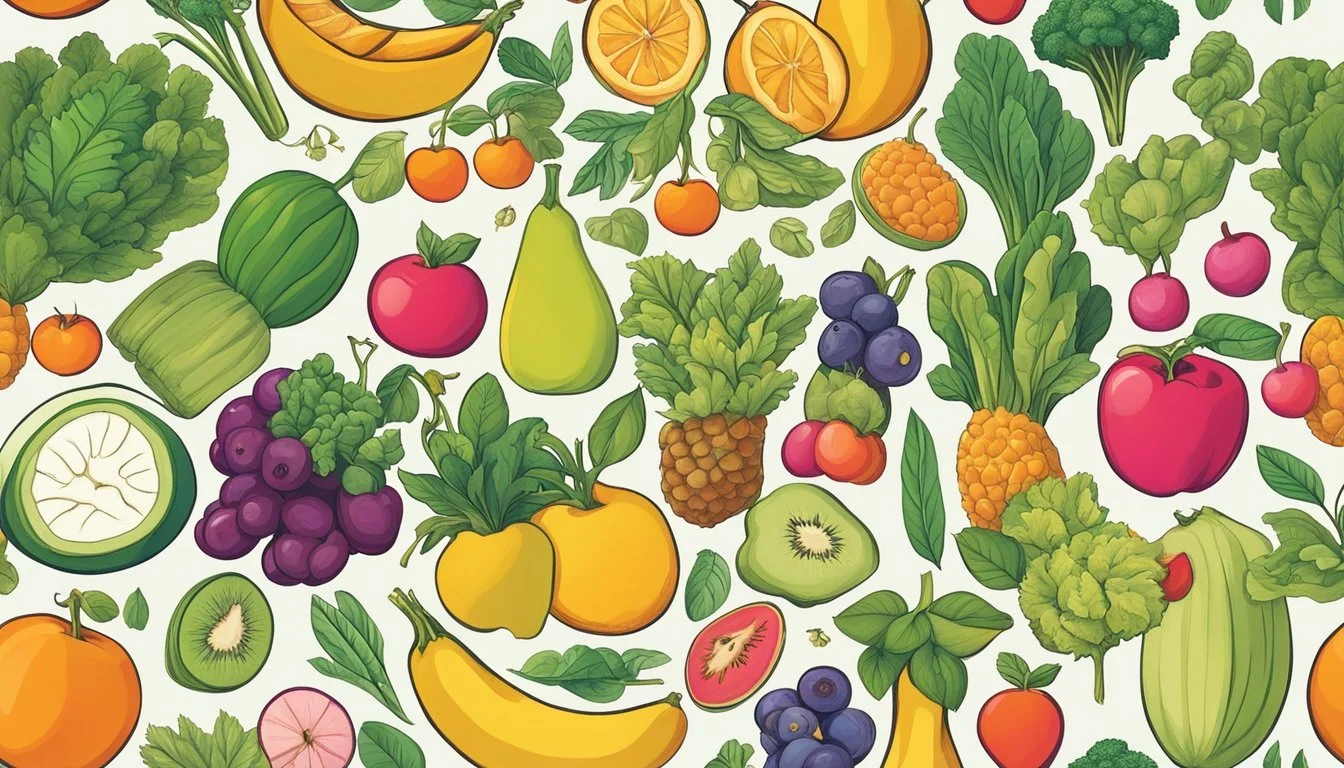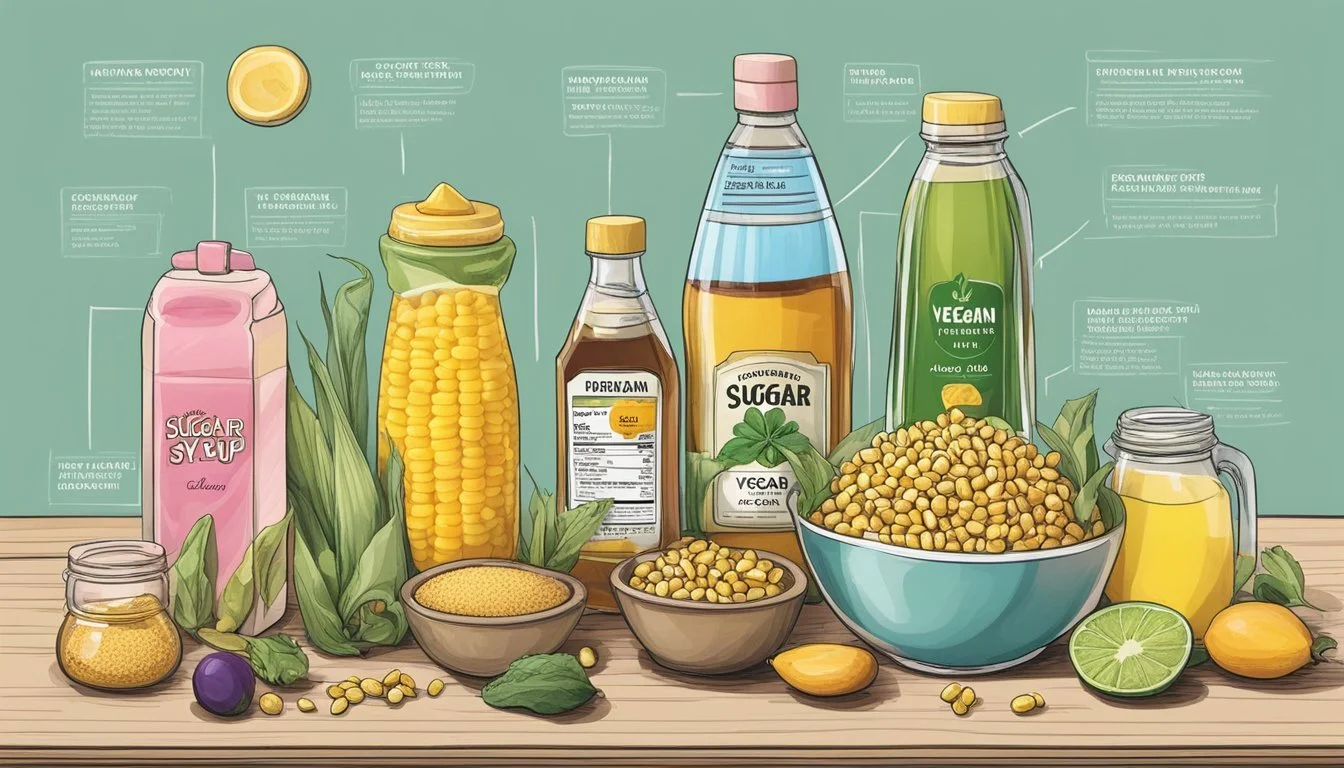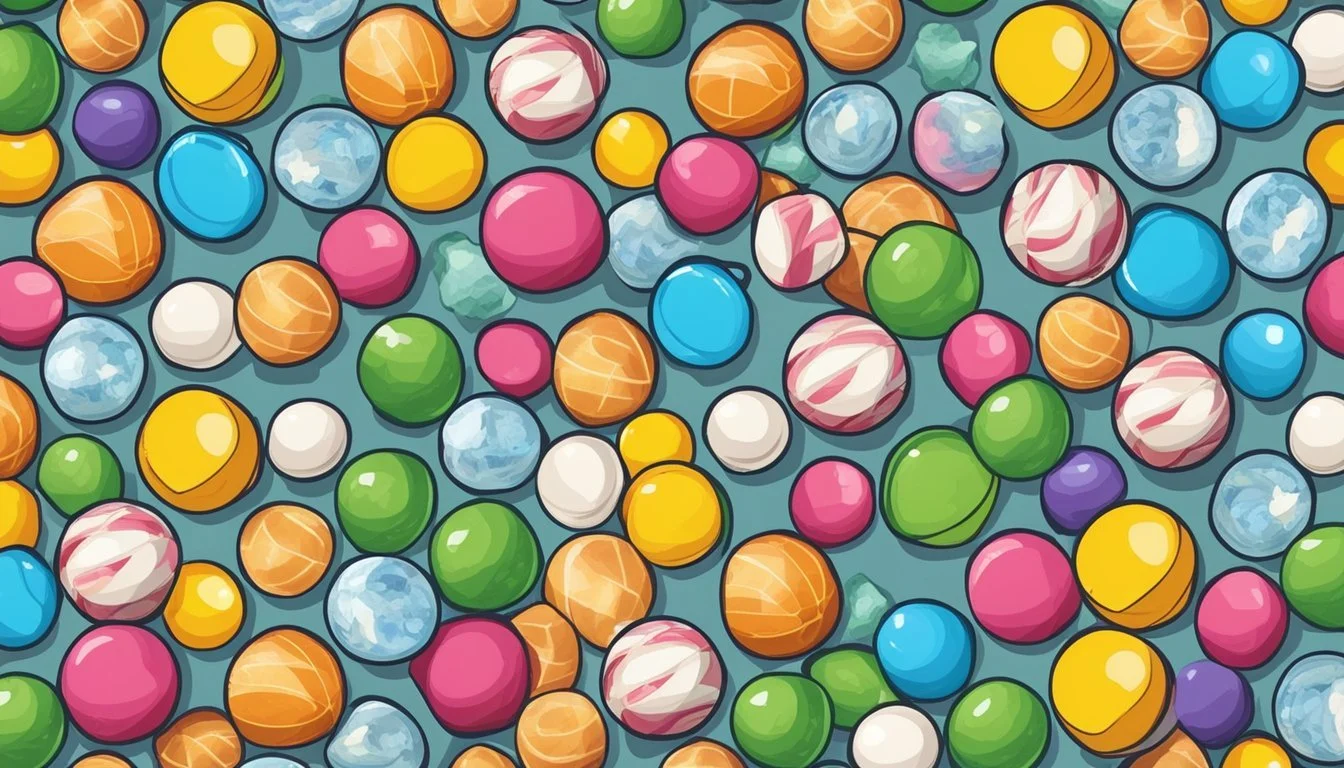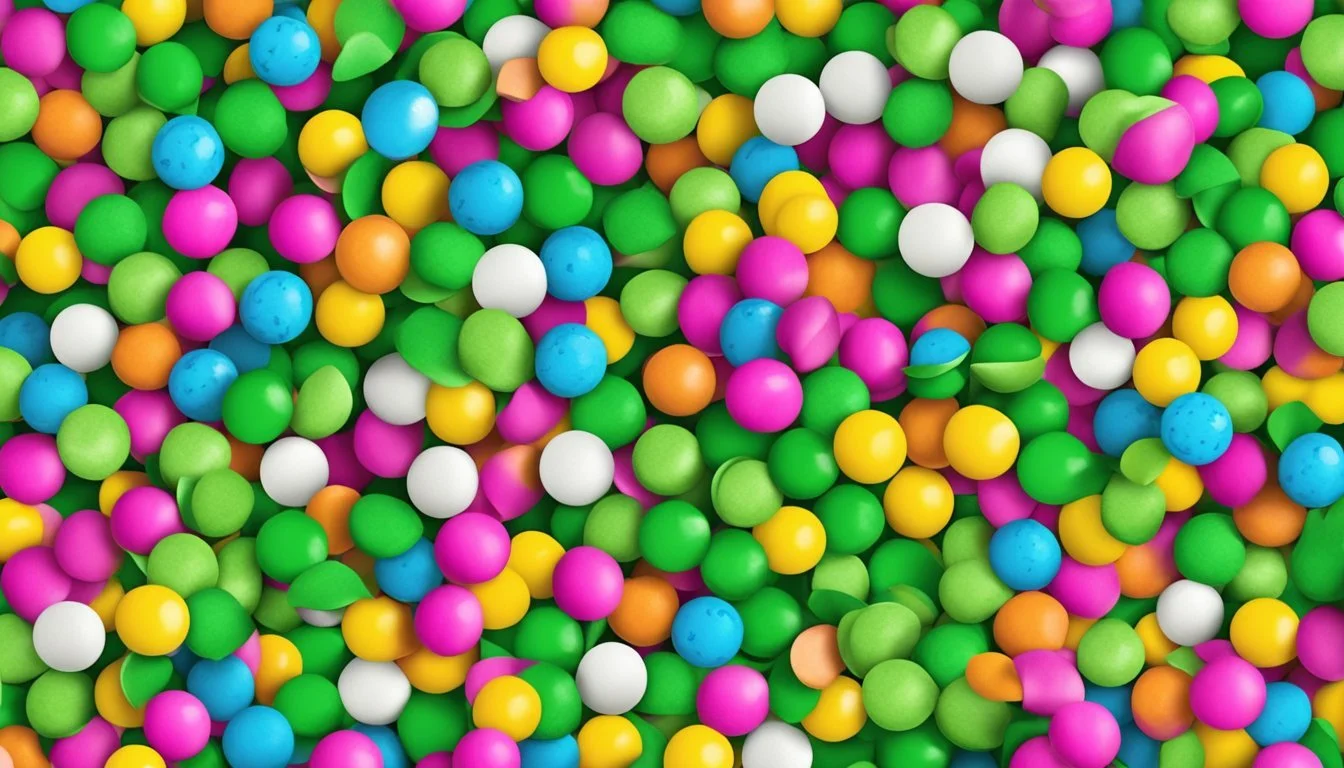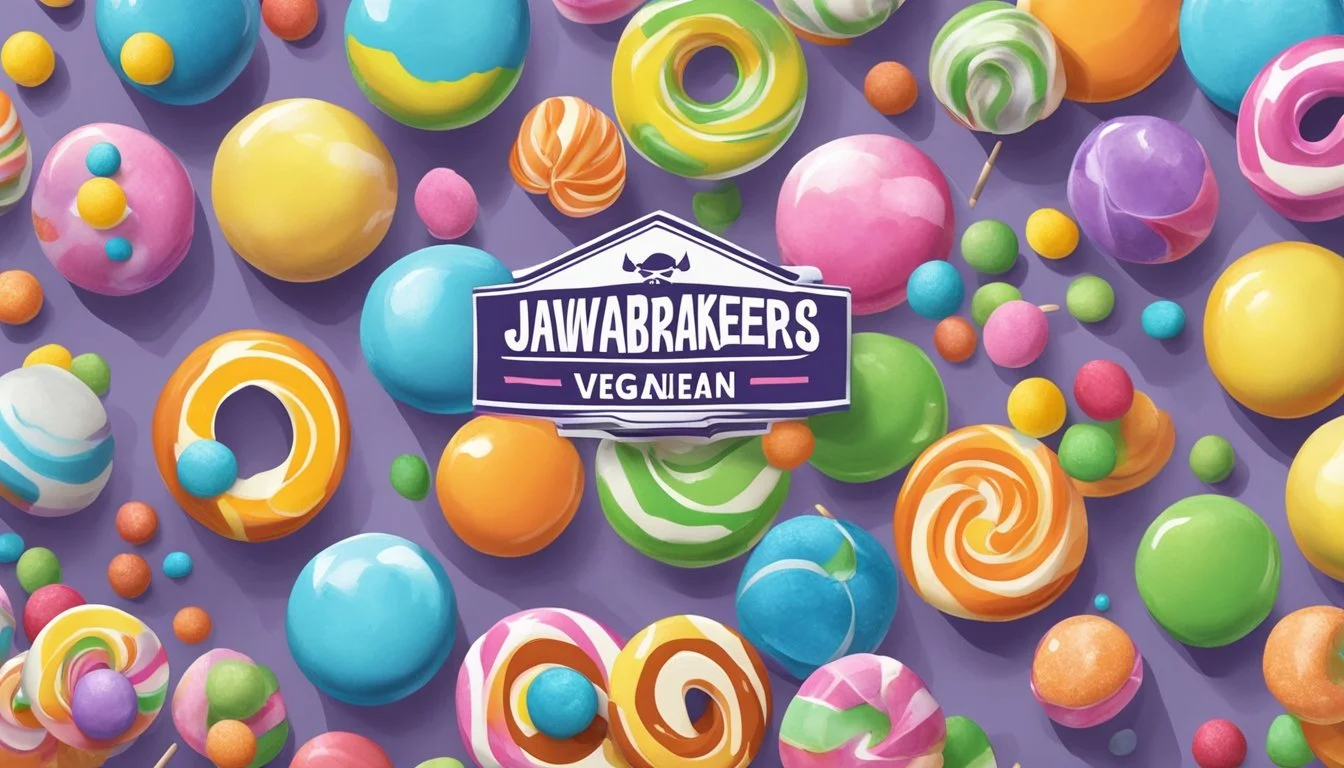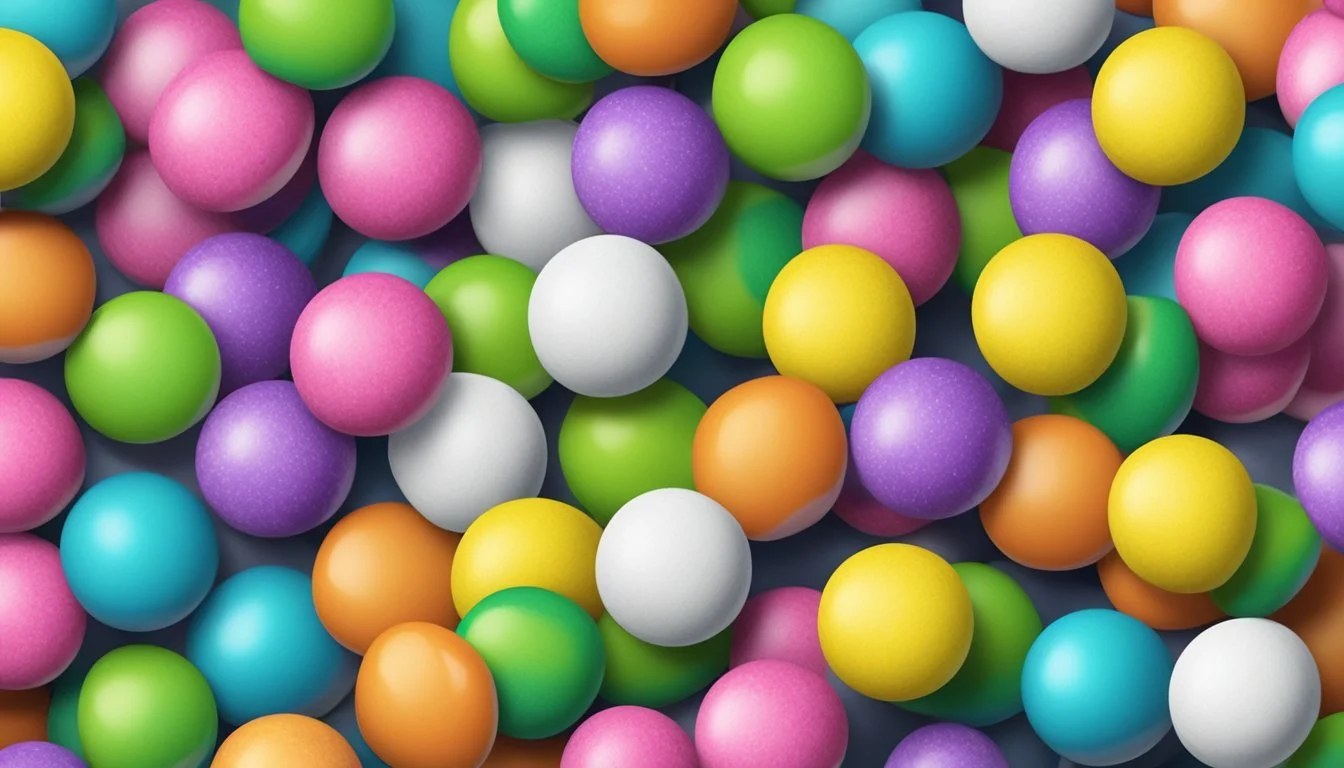Are Jawbreakers Vegan?
Unwrapping the Truth About This Classic Candy
Jawbreakers, the hard and round candies that have been a staple in confectionery shops for generations, are known for their multiple layers and the lengthy time it takes to consume them. Their longevity as a treat comes down to their basic ingredients, typically sugar, corn syrup, and food dyes. Vegans, who abstain from using animal products, often scrutinize ingredients lists to determine if such confections align with their dietary choices.
The question of whether jawbreakers are vegan-friendly is not clear-cut. The primary issue lies in the dyes and additives used. For example, some jawbreakers may contain the dye E120, also known as carmine, which is derived from insects, making those particular sweets unsuitable for vegans. On the other hand, there are jawbreakers on the market that avoid animal-derived ingredients completely, showcasing that vegan options do exist.
Consumers looking for vegan jawbreakers should examine the ingredient list carefully. It is essential to look for indicators of non-vegan ingredients, such as carmine, and to be aware of any controversial additives that may not align with a strict vegan lifestyle. Transparency in labeling and the rise of vegan-certified candies are making it easier for vegans to enjoy these timeless treats without compromising their ethical standards.
Veganism and Its Principles
In this section, we examine the core tenets of veganism, specifically addressing the intricacies of identifying vegan-friendly ingredients, with a focus on the challenges faced by vegans when choosing confectioneries such as hard candies like gobstoppers.
Understanding Veganism
Veganism is a lifestyle and ethical stance whereby individuals abstain from using animal products and by-products to the extent that is possible and practical. This philosophy extends beyond dietary choices to reject the commodification of animals, encompassing opposition to animal testing and the use of animal-derived ingredients in various industries.
Ingredients to Avoid for Vegans
Vegans must navigate a complex array of ingredients to ensure their consumption does not indirectly support animal exploitation. Some key non-vegan ingredients to avoid include:
Meat and Fish: Any form of flesh obtained from animals.
Dairy and Eggs: Products produced from the milk of animals or from their eggs.
Gelatin: A gelling agent derived from boiled bones, skin, and tendons of animals.
Carnauba Wax: Often used in producing glossy coatings, sourced from palm leaves but sometimes tested on animals.
Carmine: A red dye made from crushed cochineal insects.
Shellac: A secretion from the lac bug used for confectioners' glaze.
Bone Char: Often used in refining sugar, which can be present in candies.
Vegans also consider the presence of animal testing which renders a product non-vegan even if the ingredients might be plant-derived.
Confectionery and Vegan Challenges
Confectioneries, especially candy, present unique challenges for vegans. Hard candies and gobstoppers may contain non-vegan ingredients or additives. Everlasting Gobstoppers, for example, could include colors tested on animals or a shinny outer layer made with shellac or confectioners' glaze. Vegans must review ingredients lists vigilantly to avoid such additives.
Here is a brief overview of some common confectionery ingredients that may conflict with vegan principles:
Non-Vegan Ingredient Found In Confectionery As Gelatin Gummies, chewy candies Carmine Red-colored sweets Shellac or Bone Char Shiny glazes, white sugar
When determining whether a product like jawbreakers is vegan, meticulous attention to these specifics is essential. Vegan-friendly alternatives are increasingly available, taking into account the full spectrum of confectionery production from ingredient sourcing to the final product.
Jawbreaker Ingredients Analysis
Evaluating the ingredients of jawbreakers is crucial in determining their vegan status. This analysis will focus on the common components, the debated contents regarding veganism, and any ingredients of animal origin that could be present in the recipe.
Common Ingredients in Jawbreakers
Ingredients Purpose Sugar Primary sweetener Corn Syrup Sweetener that provides texture Dextrose Another form of glucose that adds sweetness Natural and Artificial Flavors Provide the candies their distinctive tastes Artificial Colors (e.g., Red 40 Lake, Yellow 5, Blue 1) Give jawbreakers their vibrant colors Layers and Core Created by successive layering of the ingredients
Jawbreakers are renowned for their hardness, which is achieved by the layering of sugar-based ingredients. These candies typically include sugar, corn syrup, and dextrose to form layers and develop the desired texture leading to the core. To appeal to various taste preferences, natural and artificial flavors are added. The multiple colors seen in the layers are attributed to artificial colors like Red 40 Lake, Yellow 5, Blue 1, and others.
Controversial Ingredients: A Detailed Look
Ingredients Possible Issues for Vegans Refined Sugar May be processed with animal bone char Artificial Colors Can be tested on animals Artificial Flavors Source may be undisclosed and could involve animal-derived ingredients
While jawbreakers do not overtly contain animal products like milk or gelatin, they often have ingredients that are controversial for vegans. Refined sugar can be processed with bone char, a product of animal bones, making it a concern for vegans who avoid ingredients processed with animal derivatives. The ethics of using artificial colors are debated because they may be tested on animals. Similarly, the source of artificial flavors can be obscure, and without transparency, they become a grey area for vegans.
Potential Non-Vegan Components
Ingredients Vegan Concern Gelatin Derived from animal collagen Shellac Resinous secretion from lac bugs Confectioners Glaze Often contains shellac Carnauba Wax Considered vegan, used as a glaze Egg Albumen Protein derived from egg whites
Certain types of jawbreakers may contain gelatin for a gummy texture or shellac and confectioner's glaze for a shiny appearance, both of which are derived from animals and thus not vegan. Egg albumen is another non-vegan ingredient sometimes used to create a foamy texture. Carnauba wax, on the other hand, is a plant-based glaze that is generally accepted as vegan-friendly. It is important for vegans to check the ingredients list for these specific components when determining if a jawbreaker meets their dietary criteria.
Health Considerations and Alternatives
When evaluating candy choices, it's important to consider both the health implications of sugary candies and the availability of vegan candy alternatives that may offer a more health-conscious option for those adhering to a vegan diet.
The Health Impact of Sugary Candies
Consumption of candies high in sugar, like Jawbreakers, has been linked to various health issues. The high sugar content can contribute to an increased risk of dental problems, such as cavities and tooth decay, as sugar provides a food source for bacteria in the mouth. In addition, sugary candies are often high in calories while offering minimal nutritional value. This can lead to weight gain if consumed in large quantities without proper balance with other nutrient-rich foods.
Vegan Candy Alternatives
For individuals following a vegan lifestyle, finding candy that aligns with their diet is essential. Vegan candy alternatives are typically free from animal products such as gelatin, which is derived from collagen found in animal bones and skin, and confectioner's glaze, which is made from shellac secreted by insects.
Some popular vegan-friendly candies include:
Sour Patch Kids: A tangy, chewy candy that is both vegan and free from high fructose corn syrup.
Skittles: These fruit-flavored candies are gelatin-free and a long-standing favorite among vegans.
Swedish Fish: These soft, chewy candies do not contain any gelatin or other animal products.
It's also worth noting that some candies may be vegetarian but not vegan if they contain ingredients like beeswax or dairy. When selecting vegan candies, checking for certifications can also help ensure they meet vegan standards. Additionally, for those with dietary restrictions, many vegan candies are also gluten-free, catering to a wider array of health and dietary needs.
Ethics and Environmental Concerns
Ethical considerations and environmental implications are integral when discussing whether jawbreakers are vegan. These candies’ production processes may involve aspects that conflict with vegan ethics, focusing on animal welfare and sustainability.
Animal Welfare and Candy Production
Regarding animal welfare, the vegan standpoint strictly opposes the exploitation of animals for any purpose. In candy production, this includes the avoidance of ingredients that are of animal origin or involve animal testing. It is not common for jawbreakers to be tested on animals, but some ingredients may be of concern. Jawbreakers often contain colors derived from animal sources or are processed using bone char. Organizations like PETA advocate for cruelty-free products and provide certifications to products that comply with these standards. Consumers preferring vegan candy should choose brands that prominently display such certifications.
Environmental Issues in Candy Manufacturing
From an environmental perspective, the manufacturing of candies like jawbreakers may incorporate ingredients such as palm oil or hydrogenated coconut oil, which are associated with deforestation and habitat destruction. The production of these oils is often linked to significant environmental concerns, including loss of biodiversity and increased greenhouse gas emissions. Consumers who are environmentally conscious may seek out jawbreakers that use alternative oils or are labeled as sustainable, minimizing their ecological footprint.
Brand and Manufacturing Insights
In evaluating whether jawbreakers are vegan, one must consider the brands, their production processes, and the certifications indicating their ingredient compositions and ethical standards.
Popular Jawbreaker Brands
Two prominent brands in the jawbreaker market are Ferrara Candy Company, known for Jaw Busters, and the iconic Gobstoppers including Everlasting Gobstoppers and Chewy Gobstoppers. Both brands have a significant market share and are recognized for their multi-layered, hard candies.
The Role of Production Processes
The manufacturing process of jawbreakers involves layering sugar and adding various flavors and colors over an extended period, which can influence their vegan status. The presence of artificial colors and color added—such as in Gobstoppers—raises concerns, as some artificial colors may be tested on animals, conflicting with cruelty-free principles associated with veganism.
Confectionery Labels and Certifications
Consumers rely on labels and certifications to identify if products meet vegan standards. A typical ingredients list can reveal non-vegan components like gelatin; however, for jawbreakers that do not contain apparent animal-derived ingredients, it is key to look for certifications or disclaimers. Claims about natural flavors can be ambiguous, as these can be derived from plant or animal sources. Certifications or explicit vegan labeling ensure that all ingredients, including flavors and colors, are plant-based and cruelty-free.
Consumer Guide
When evaluating jawbreakers for vegan compatibility, consumers should scrutinize product labels and be aware of specific ingredients that may conflict with vegan standards.
Reading the Label: Ingredients and Claims
Consumers should meticulously examine the ingredients list on jawbreaker packaging, seeking out both explicit and covert animal-derived components. Key ingredients to be vigilant for include:
Sugar: It can be processed with bone char, especially in the United States. Vegans should look for jawbreakers that specify the use of unrefined or organic sugar, which is not processed using bone char.
Gelatin: A non-vegan ingredient derived from animal collagen, often used in gummy candies but less common in jawbreakers.
Milk: Some flavored jawbreakers might contain milk derivatives.
Carnauba Wax and Shellac: Used in candy for a shiny finish, carnauba wax is vegan-friendly, whereas shellac (also known as confectioner's glaze) is derived from insects, and not suitable for vegans.
Color Added: Synthetic colors are typically vegan, but some colorings, like carmine, are animal-derived.
Labels might also boast claims such as "vegan-friendly" or "suitable for vegetarians." These statements can be helpful, but disclaimers such as "may contain traces of milk" could indicate potential cross-contamination, which might concern strict vegans.
Vegan-Specific Concerns
Vegans should consider the source and manufacturing process of ingredients commonly found in jawbreakers. Besides the base components detailed above, additional substances may raise concern:
Beeswax: Sometimes used as a glazing agent, beeswax is an animal byproduct.
Artificial Flavors: Although generally vegan, the origin of these flavors should be verified with the manufacturer when in doubt.
Cross-contamination: Even if a candy is vegan by ingredients, the manufacturing process might expose it to non-vegan substances.
Consumers may need to contact manufacturers directly to inquire about cross-contamination risks and the specifics of certain ingredients. This dialogue can often provide the clarity needed to make an informed vegan-friendly choice.
Conclusion
Jawbreakers, commonly known as Gobstoppers, have stirred up a debate regarding their vegan status. It is established that traditional Gobstoppers contain egg albumen, which disqualifies them from being vegan-friendly. Moreover, Jaw Busters, though free from outright animal-based ingredients such as milk or gelatin, do have components like refined sugar and artificial additives that are contentious in vegan circles.
Those considering the consumption of Gobstoppers should be aware that strict vegans might avoid these candies due to the presence of animal-derived ingredients and their potential ethical implications.
For individuals following a less stringent vegan diet, the decision to consume Jawbreakers may hinge on personal discretion regarding refined sugar and artificial colors and flavors. This ambiguity suggests that while Jawbreakers may be suitable for some with plant-based diets, they may not align with the ethical consumption standards of others.
Candy Vegan Status Controversial Ingredients Gobstoppers Not vegan due to egg albumen N/A Jaw Busters Potentially vegan, but contains controversial ingredients Refined sugar, artificial colors, and flavors
Consumers are encouraged to assess each variety of Jawbreaker carefully and to scrutinize ingredient lists to ensure alignment with their dietary choices. It is recommended to seek alternatives if there is any doubt about the suitability of these candies for a vegan diet.


